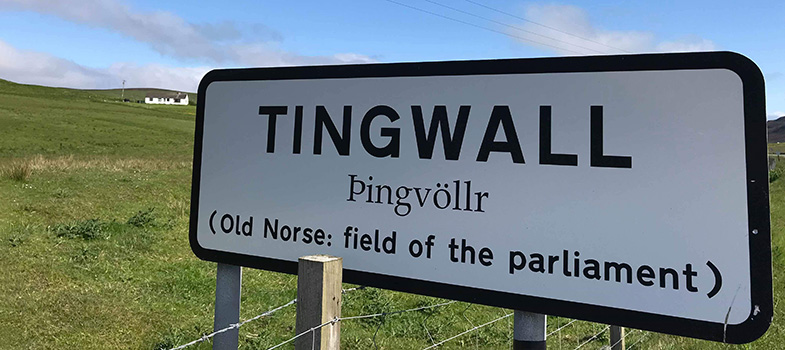5.6 The main political parties and Scots
In the previous section you learned about the impact of different governments on the official recognition of the Scots language in Scotland. In this section, you will look at the policy positions of three main political parties in Scotland (SNP, Labour, Conservative and Unionist) towards Scots.
Scots language and Scotland’s main political parties 
While reading the three sections which illustrate vastly different standpoints, consider what factors may lie behind the party positions outlined here.
Scottish National Party
The SNP has consistently included mention of Scots within its manifesto, although it’s positioning towards the language has changed over the years. The 1999 manifesto, for the first elections to the Scottish Parliament, stated that: ‘English, Gaelic and Scots must co-exist on an equal basis in Scotland, and we will grant Scots and Gaelic “secure status” in the Parliament and national life’ (1999 Manifesto, p. 28).
The 2003 Holyrood manifesto was even more explicit, stating that ‘the SNP in government will introduce a Languages Act, giving secure status for the Gaelic and Scots languages’ (2003 Manifesto, p. 18).
By the 2007 Holyrood election, the Gaelic Language (Scotland) Act 2005 had been introduced by the then-Labour Executive. The SNP manifesto in 2007, however, made no mention of equal status for Scots and Gaelic. Instead, it committed only to: ‘promot[ing] an increased awareness of Scots and its literature. This will include introducing a question on Scots in the census and ensuring that European obligations to develop the language are honoured. We will actively encourage the use of Scots in education, broadcasting and the arts’ (2007 Manifesto, p. 57).
As you read in the previous section, as the party of government, between 2007 and 2011, these commitments were broadly honoured. In its 2011 manifesto, building on the work undertaken since 2007, the SNP committed to:
‘support[ing] the introduction of a Scottish Studies element within the curriculum and see this as an important vehicle for protecting and promoting Scotland’s languages and also their literature. We will develop a national Scots language policy, with increased support for Scots in education, encouragement of a greater profile for Scots in the media, and the establishment of a network of Scots co-ordinators’.
By the next Holyrood elections in 2016, as you learned in section 4, these commitments had also broadly been honoured.
The SNP manifesto for the more recent Holyrood elections in 2016, which saw the party once more re-elected to government, contained only limited reference to Scots: stating in the final sentence of the A Creative Future section that, ‘we will also provide support for the Scots language’ (2016 Manifesto, p. 43).
Labour Party
Neither Labour’s 1999, 2003, or 2011 Holyrood manifesto made any reference to Scots.
Its 2007 Holyrood manifesto, however, included the following:
‘Given its diverse nature, we will investigate the best way to promote Scots and will work to build a consensus on the most appropriate role in our society for it. We will support the development of children’s literature in Scots.’
This specific focus on Scots in 2007 might have been the result of the strong position of the SNP in Scotland at the time, when polls suggested that the SNP may be an electoral threat to the then current Labour Executive. In contrast, Labour’s latest 2016 manifesto stated only: 'We recognise Scotland’s rich cultural heritage including Gaelic, Scots and Nordic' (The Parties and Scots, 2016).
Labour were the only party to make such a division in terms of separating languages into Gaelic, Scots and then also to Nordic.
Conservative and Unionist Party
None of the party’s Holyrood manifestos (1999, 2003, 2007, 2011, 2016) make any reference to Scots.
5.5 Political recognition and protection of Scots
